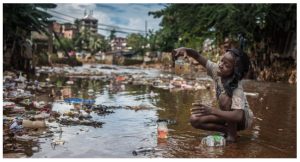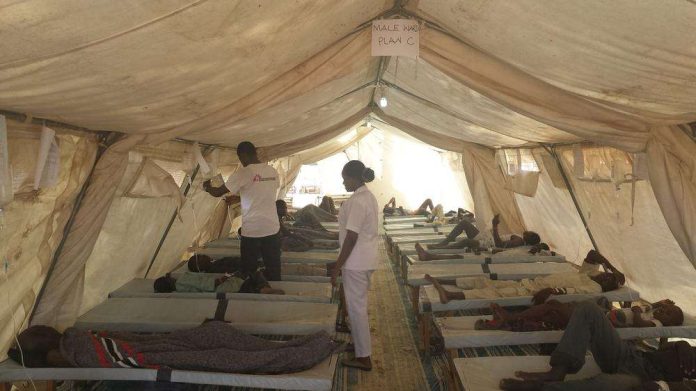
The Nigeria Centre for Disease Control and Prevention (NCDC) has alerted the public to the increasing trend of cholera cases across the country, as a total of 1,141 suspected and 65 confirmed cases of cholera with 30 deaths have been reported from 96 LGAs in 30 states.
In a statement released by the center on Wednesday, it was said that ten states—Bayelsa, Zamfara, Abia, Cross River, Bauchi, Delta, Katsina, Imo, Nasarawa, and Lagos States—accounted for 90% of the cholera cases.
The Federal Ministries of Environment and Water Resources, the National Primary Health Care Development Agency (NPHCDA), the World Health Organization (WHO), United Nations Children’s Fund (UNICEF), and other partners, along with the NCDC as the group’s leader, have reportedly been offering assistance to the impacted states through the multi-sectoral National Cholera Technical Working Group.
Before consuming, it was suggested to the public to make sure the water was boiled and kept in a clean, covered container.
Keeping your hands clean by periodically washing them with soap under running water is another piece of advise using hand sanitizer that contains alcohol In the absence of soap and clean water, make sure that food is completely cooked before ingesting it, and only eat raw foods like fruits and vegetables after giving them a good wash.
“Food should be fully warmed before consumption to prevent contamination from flies and improper handling after cooking or boiling water. It is not advisable for someone who has diarrhea to cook, serve, or carry water for others.
Steer clear of open defecation, careless trash disposal, improper waste disposal, and infrequent sewage clearing.
“Please do not self-medicate; instead, visit a healthcare facility immediately if you or anyone you know experiences sudden watery diarrhea,” the center cautioned the public.
“ABOUT CHOLERA”
The bacteria Vibrio cholerae, which is present in polluted water and food, is what causes cholera, an illness that is spread by food and water. Usually, the feces of diseased people pollute water. Drinking water can get contaminated at the source, on the way, or when being stored at home. Food may be contaminated by hands soiled while eating or preparing food.
Refreshments arranged with defiled water and sold by road merchants, ice, and, surprisingly, business filtered water, have been involved as vehicles of transmission, as have cooked vegetables and natural products renewed with untreated wastewater. Between infection and the onset of symptoms, two hours to five days pass. It is more likely to spread in places where there aren’t enough restrooms or clean water on a regular basis. The safety of water used for drinking and personal use is endangered by unsafe practices like open defecation and improper disposal of waste.
The Most At Risk Individuals Are:
- People living in areas with restricted access to clean water, regardless of age.
- Individuals who reside in places with inadequate hygiene and sanitation.
- Individuals residing in impoverished neighborhoods lacking access to basic water and sanitary facilities.
- Individuals who live in rural areas and get their drinking water from dangerous sources such as borehole or piped water.
- Individuals who eat possibly infected fruits or food without properly cleaning and preparing them.
- Those who don’t wash their hands when they should.
- Natural or man-made disasters, such as floods, can cause population shifts and congested camps for refugees
- Family members who provide at-home cholera care for ailing patients
Direct patient care is provided by healthcare professionals, such as physicians, nurses, and other health workers, in the absence of customary safety measures.
The symptoms of cholera
Cholera symptoms include abrupt onset, intense, painless, watery diarrhea (rice water stools), with or without vomiting. Frequent vomiting, nausea, and fever are possible side effects. Severe cases can cause substantial fluid loss from dehydration, which can result in mortality in a matter of hours. Nonetheless, the majority of infected individuals (about 80%) may merely exhibit minimal symptoms or none at all.
Cholera Treatment
If the sickness is found early on, it is easily treated. The majority of infected individuals can be effectively treated with timely oral rehydration solution (ORS) delivery to replenish lost electrolytes and fluids, along with the recommended antibiotics. Reconstituted with boiled or bottled water, the ORS solution is a powder. If an infected person does not get medical attention right away, cholera can be fatal.


